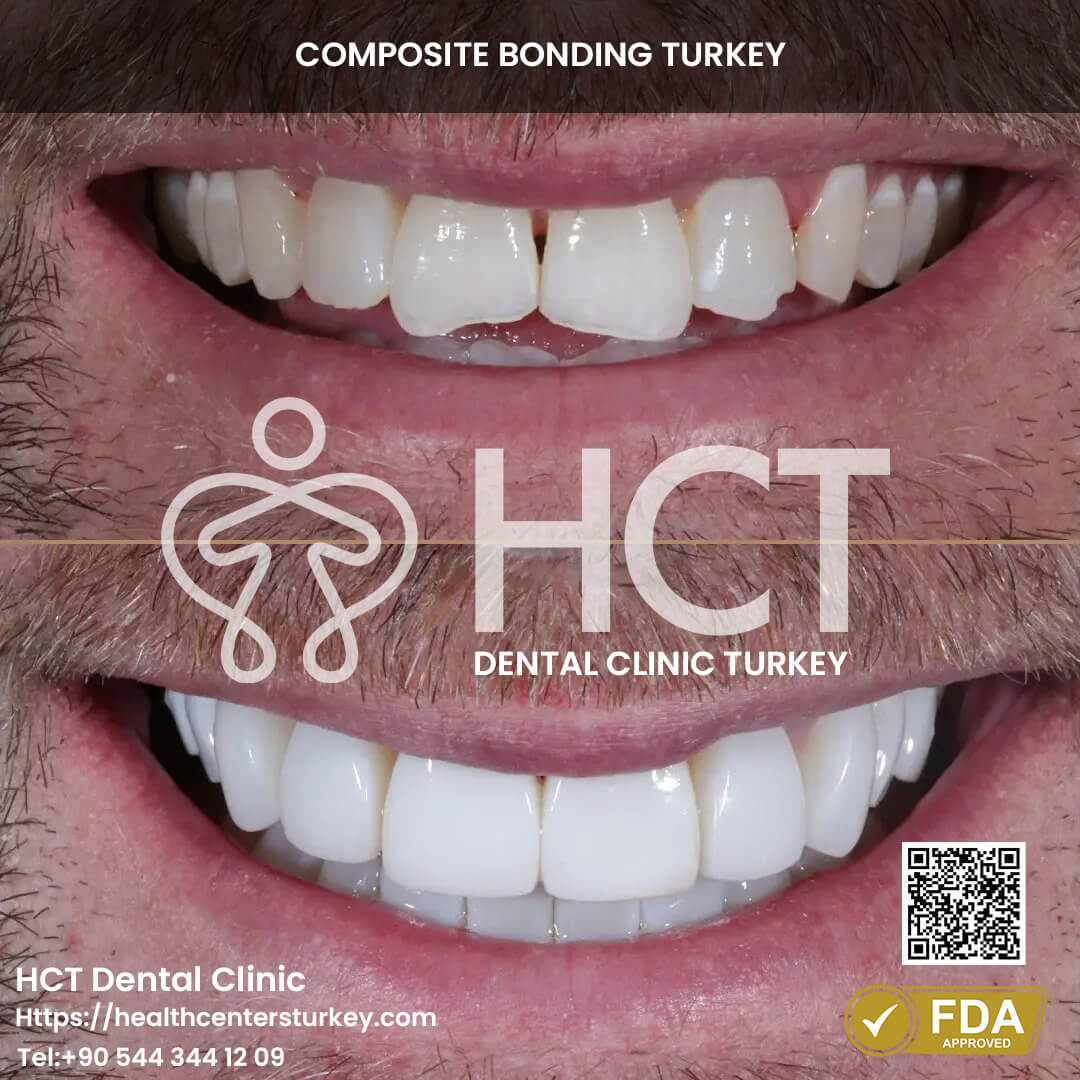Achieve Your Best Smile with Advanced Dental Solutions in Turkey

Dental implants have become a focus in modern dentistry, providing a dependable answer for these facing tooth loss. Among the multiple benefits they offer, one vital side value contemplating is their influence on adjacent teeth. Understanding how dental implants have an result on surrounding teeth aids in making informed choices about oral health.
When a tooth is lost, neighboring teeth can simply shift towards the space left behind. This motion can result in misalignment, which compromises the overall chew and performance of the mouth. Dental implants mimic natural tooth roots, thereby maintaining the place of adjacent teeth.
Experience Luxury Dental Care in Turkey with Competitive Prices
The stability supplied by an implant is crucial, because it helps in preserving not just the physical alignment but in addition the structural integrity of the jawbone. When a tooth is missing, the underlying bone can begin to deteriorate because of lack of stimulation. An implant exerts stress on the bone during chewing, similar to a natural tooth, which promotes bone health.
In some instances, a bridge or partial denture could additionally be considered as a substitute for implants. While these choices may restore some performance, they'll place extra stress on neighboring teeth. Bridges usually require filing down the encircling teeth to accommodate the anchors, thereby affecting their health over time. Dental implants, then again, do not alter present teeth, making them a extra conservative alternative.
Leading Dental Clinics Specializing in Implants in Turkey
Hygiene becomes one other important factor when considering adjacent teeth in the context of implants. With dental implants, the individual can keep an everyday hygiene routine similar to natural teeth. Flossing and brushing around the implant are easy, guaranteeing that the gum tissue remains healthy and minimizing the danger of gum disease that would adversely have an result on adjacent teeth.
Moreover, the materials used in dental implants are biocompatible. This means they are designed to integrate properly with the body, decreasing the possibilities of an adverse reaction. This attribute not only makes the implant protected but in addition protects close by teeth from potential points that would come up due to contamination or infection.
In phrases of aesthetics, dental implants offer a natural look and feel, closely resembling original teeth. Adjacent teeth benefit from this aesthetic attraction as properly. When an implant is placed, the encompassing gum tissue could be shaped to mimic natural contours, thereby enhancing the overall appearance of the smile. This aesthetic factor can encourage individuals to invest in their oral care routines, benefiting each the implants and adjacent teeth in the long term.
Why Turkey is a Top Destination for Dental Treatments
Another concern is the potential for gum disease, which can have an result on the health of adjacent teeth. Gum disease can occur when plaque builds up round teeth and implants. Regular dental visits and acceptable oral hygiene can mitigate this concern. The presence of implants can even function a motivator for higher dental hygiene practices, as people turn into more conscious of sustaining their total mouth health.
Studies have proven that dental implants can contribute to a major enchancment in quality of life. Patients typically experience increased confidence and are less hesitant to smile or engage in social interactions. A wholesome and well-maintained smile not directly promotes higher look after adjacent teeth, as individuals are inclined to become more aware of their total oral hygiene.
One often-overlooked side is the psychological influence of dental implants on patients. Knowing that implants offer long-term options can ease the nervousness associated with tooth loss. With site web fewer worries about future tooth shifts, patients are extra doubtless to invest effort and time into caring for his or her teeth, which includes adjacent teeth.
In conclusion, dental implants function more than only a solution for missing teeth; they play a pivotal position in maintaining the health and integrity of adjacent teeth. From stopping misalignment to promoting gum health and enhancing aesthetics, the advantages are manifold. By opting for implants, people can not solely restore functionality but additionally foster a healthier oral setting for surrounding teeth. The psychological and aesthetic benefits further contribute to an general enhanced quality of life.
Rejuvenate Your Oral Health with Advanced Dental Treatments in Turkey
In the long term, understanding how dental implants affect adjacent teeth can guide people in making empowered choices concerning their dental health. The integration of these implants into the mouth acts as a stabilizing drive, safeguarding both the bodily alignment and functionality of neighboring teeth, while selling a long-lasting, healthy smile.
- Dental implants sometimes don't exert strain on adjacent teeth, sustaining their integrity and reducing the chance of shifting or misalignment.
- The placement of an implant typically encourages higher oral hygiene habits, positively influencing the health of adjacent teeth via improved cleansing practices.
Experience Excellent Dental Care at Affordable Prices
- In some cases, dental implants can stimulate the encompassing bone, which helps protect the natural teeth's place and total dental structure.

- The gap left by missing teeth can lead to bone loss; dental implants can prevent this, thereby defending adjacent teeth from potential problems.
- Top Notch Cosmetic Dentistry Services Available in Turkey
Tailored Teeth Care Solutions available for Every Patient in Turkey
- By restoring the perform of a missing tooth, implants help distribute bite forces evenly, lowering put on and stress on neighboring teeth.

- Properly placed dental implants can act as a support structure, preventing undesirable motion of adjacent teeth ensuing from tooth loss.
- The presence of an implant might improve the aesthetic appearance of surrounding teeth by filling in gaps and supporting facial structure.
Complete Dental Packages Featuring Cosmetic Options
- Dental implants remove the necessity for adjacent teeth alteration, in distinction to bridges, which require reshaping the close by teeth for help.
- Implants also reduce the risk of gum disease compared to other tooth replacement choices, not directly benefiting adjacent teeth by selling general oral health.
Reasonably Priced Teeth Brightening Treatments to Enhance Your Smile.
- Long-term success of dental implants is linked to the health of surrounding teeth, emphasizing the importance of regular dental check-ups and maintenance.
How do dental implants have an effect on adjacent teeth?
Elevate Your Smile with Innovative Dental Practices in Turkey
What are dental implants and the way do they work with adjacent teeth?undefinedDental implants are artificial tooth roots placed into the jawbone to assist replacement teeth. They don’t have an result on adjacent teeth instantly, as they're unbiased More Help structures. Instead, they can help preserve the integrity of surrounding teeth by stopping bone loss.
Can dental implants trigger damage to adjacent teeth?undefinedIf placed accurately, dental implants shouldn't harm adjacent teeth. However, improper placement can lead to points like misalignment or pressure, emphasizing the importance of choosing an skilled dental skilled.
Will dental implants promote bone growth around adjacent teeth?undefinedYes, dental implants assist stimulate the jawbone, which may encourage bone progress. This can benefit adjacent teeth by sustaining bone density and stability in the area.
Top Implant Solutions Available in Turkey
Should I fear about gum disease affecting adjacent teeth after getting an implant?undefinedGood oral hygiene is essential after getting an implant. Gum disease can still affect adjacent teeth, however a properly maintained implant does not enhance that risk. Regular dental visits might help monitor and maintain gum health.
What happens to adjacent teeth if I lose a dental implant?undefinedIf a dental implant fails or is misplaced, adjacent teeth might shift as a result of adjustments in chew alignment and support structure. This may lead to misalignment or extra tooth loss if not addressed.
Are there any particular care requirements for adjacent teeth after getting implants?undefinedMaintaining good oral hygiene practices, together with common brushing, flossing, and dental check-ups, is essential for each dental implants and adjacent teeth to prevent decay and gum disease.
Life-Changing Dental Care Experiences for Tourists
Do dental implants help assist adjacent teeth when chewing?undefinedAbsolutely. Implants can improve overall chew function, which might alleviate stress on adjacent teeth during chewing. This can result in better distribution of forces, selling oral health.
How can I prevent issues with adjacent teeth and implants?undefinedConsistent dental care, including skilled cleanings and examinations, regular brushing and flossing, and following your dentist’s aftercare directions, are key to preventing issues.
Can adjacent teeth move if I have a dental implant?undefinedAdjacent teeth may transfer if they are not well-supported, especially after tooth loss. A dental implant helps keep the structure, lowering the danger of shifting teeth.
Comments on “Knowledge in Oral Health at Affordable Rates”